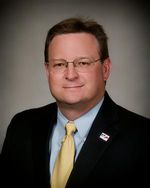The fall of Midland ISD's junior high schools
Critics remain anonymous Community leaders weigh in Principal Debbie Jordan ousted Junior highs struggle |
Budget: $204.16 million Enrollment: 23,319 students |
Midland Independent School District, Texas |
![]() This article may not adhere to Ballotpedia’s current neutrality policies.
This article may not adhere to Ballotpedia’s current neutrality policies.
December 7, 2015
By Jon Cassidy
Four years ago, there was a decent path through the Midland school system available to motivated parents.
Midland Independent School District’s performance was well below average, but at each level—elementary, junior high, high school—there was at least one school that produced scores in the mediocre-to-average range.
That’s no longer true. Junior high has become a choke point with students making little academic progress. The nightly news runs reports about Instagram pages filled with fight videos made by local junior high kids.
As standardized test scores deteriorate, the district’s superintendent, Ryder Warren, belittles their importance, supported by editorials in the local paper with headlines such as “Latest ratings don’t mean much in Midland.”[1]
Actually, those ratings tell a story.
The FAST rankings
When Warren became superintendent in July 2010, three of the district’s four junior highs were scoring poorly on standardized tests, with results in the range of the 20th to 30th percentiles. Abell Junior High, however, had been scoring above the statewide average for most of the previous decade on its standardized tests. Throughout that time it was run by Principal Debbie Jordan.
In September 2011, the state comptroller’s office came out with its Financial Allocation Study for Texas (FAST) rankings of school efficiency.
“Superintendent Ryder Warren said the rating means nothing to him and to the district,” the Midland Reporter-Telegram reported.[2]
The FAST ranking is a hybrid, based both on how much schools spend and on the academic progress of students in each school. Warren had a number of reasons for ignoring the financial element, but the test scores he was disregarding showed a clear problem with the junior highs.
Unlike the raw scores, which measure how much students know, this assessment aimed to show how much they had learned in a year; in Midland, they weren’t learning much in seventh and eighth grade. Two junior highs were in the bottom percentile statewide, one was in the second, and the other, Abell, was in the ninth percentile.
Critics remain anonymous
| Education policy |
|---|
Click here to learn more about education policy in Texas. |
| Education on the ballot |
In other words, the elementary schools were doing a good enough job teaching math, spelling and other basics that it had been obscuring just how poorly the junior highs were doing. That poor performance is still not well known in the community, even if it’s obvious to the students. As one person put it in an anonymous review of Abell, “most of the teachers here don't teach, they sit around on there [sic] phones while they put on a video... There are about 4 teachers in that school who actually care about there [sic] jobs.”[3]
All of the district’s junior highs have been getting one-star reviews on public comment boards lately, with the harshest criticism posted by someone claiming to be a teacher at Alamo Junior High.
“The teachers are not supported by the current principals,” the reviewer wrote. “Subs don't want to come here because the kids are so disruptive and rude. Ongoing drug issues all across the campus. Fights practically everyday with little or no supervision. The campus principal is rarely seen outside of her office.”[4]
For the most part, the district’s critics remain anonymous and online. The public comment portion of the local school board meetings, which elsewhere is filled with gripes, often passes without a single complaint in Midland. There are no community groups up in arms. And the local paper hasn’t found any malcontents to cover.
Community leaders weigh in
The subject is of intense interest to a number of community and business leaders, many of whom support Warren, although some do so with reservations.
Ronnie Scott, the president of Midland-based True Oil and a member of a group of influential boosters, praises Warren’s leadership.
“Despite high-quality people, our school performance is poor,” Scott acknowledges. “The superintendent’s got a pretty good record coming in. But he’s said the things he’s tried before that worked didn’t work here.”
So Warren is pressing on with new approaches to evaluate and support teachers, to recruit and retain leaders, and to incorporate new teaching methods and techniques, Scott said. He’s sold. So is the local newspaper’s editorial board, which responded in August to a negative assessment by state officials by calling it “no news.”
“We are totally on board with what we have heard about the changes and how those changes will impact the district in the long term,” the Midland Reporter-Telegram editors wrote.[1]
Patrick Payton, the pastor of Stonegate Fellowship and another school booster, says that the district was unprepared for demographic shifts caused by the oil boom, and that simply blaming Warren is a dodge, an excuse for not getting involved.
“Things aren’t going to improve until we start owning it as a community,” Payton said. “I don’t personally have a roadmap. But any roadmap needs to say that we as a community are no longer going to be allowed to blame the school district for their failures.”
Principal Debbie Jordan ousted
The one place where Warren’s critics are visible is the comments section of nearly every school-related article published by the Midland Reporter-Telegram.
In 2012, Warren replaced the principals at San Jacinto and Abell junior highs, meaning Jordan would be retiring. The comments section exploded in argument.
Some had found Jordan abrasive, a poor fit for Warren’s upbeat management style.
“We witnessed her yelling at teachers, parents and students for minor issues. School was run like a prison over there....Yes, Dr. Warren is a wonderful man and thankfully removed her,” wrote one anonymous commenter.[5]
Others defended her, pointing out that her test scores were “the best in Odessa and Midland and have been for over 20 years.”[5]
“You may not like Ms. Jordan, but the fact is she got the job done,” wrote one commenter who claimed to have worked for her.[5]
“Personally, I wish more principals held their teachers accountable for test scores,” wrote another. “In a world driven by test scores, she did a fantastic job and got done completely wrong by the district and Dr. Warren. I guess he had to make an example out of somebody to scare the other principals in the district by going after the one with the highest test scores.”[5]
Junior highs struggle
Since then, scores at both schools have plummeted.
A site called SchoolDigger takes each school’s scores on the statewide reading, writing, math, social studies and science tests, turns them into a single average score, and then ranks the schools by percentile statewide.[6]
Since Superintendent Warren replaced Jordan in 2012, Abell has fallen from the 48th percentile to the 22nd percentile. In the same time, San Jacinto has fallen from the 31st percentile to the 16th.
The next year, Warren appointed a new principal of Goddard Junior High, which has since fallen from the 24th percentile to the 13th.
At Alamo Junior High, Warren has retained Leann Maxwell-Dumas, who was the Texas Classroom Teachers Association’s Administrator of the Year in the 2011-2012 school year. She had brought her school up to the 28th percentile in 2011, but it has since plummeted to seventh.
The latest academic progress scores are more dismal yet, suggesting that even those low attainments are attributable to what the students had already learned in elementary schools. Abell is in the fourth percentile, San Jacinto is in the second, and the other two are still in the bottom percentile, just burrowed in a bit deeper.
Warren did not respond to questions about why Midland’s junior highs are performing so poorly and what he intends to do about it. His $265,000 salary makes him one of the 40 highest paid superintendents in the state. Midland was the 53rd-largest school district by enrollment out of 1,254 Texas school districts in the 2012-2013 school year.
Jon Cassidy is a reporter for Watchdog.org. He used to report for The Orange County Register and The Hill, and his work has been published by Fox News, Reason, The American Spectator, The Federalist, Human Events and other publications. He is a 2014 Robert Novak Journalism Fellow. He lives outside of Houston with his wife and two children.
See also
- Exploring the Midland school system's poor academic performance
- Midland Independent School District, Texas
- Midland Independent School District staff
- Midland Independent School District elections (2016)
- List of school districts in Texas
- Public education in Texas
- Texas Education Agency
Footnotes
- ↑ 1.0 1.1 Midland Reporter-Telegram, "EDITORIAL: Latest ratings don’t mean much in Midland," August 11, 2015
- ↑ Midland Reporter-Telegram, "Comptroller's report gives MISD low rating," September 15, 2011
- ↑ GreatSchools, "Abell J High School," April 7, 2015
- ↑ GreatSchools, "Alamo J High School," June 19, 2015
- ↑ 5.0 5.1 5.2 5.3 Midland Reporter-Telegram, "Midland ISD fears it can't fill positions," May 19, 2012
- ↑ SchoolDigger, "Abell J H," accessed December 7, 2015
| |||||
| |||||||||||||||||||||||||







